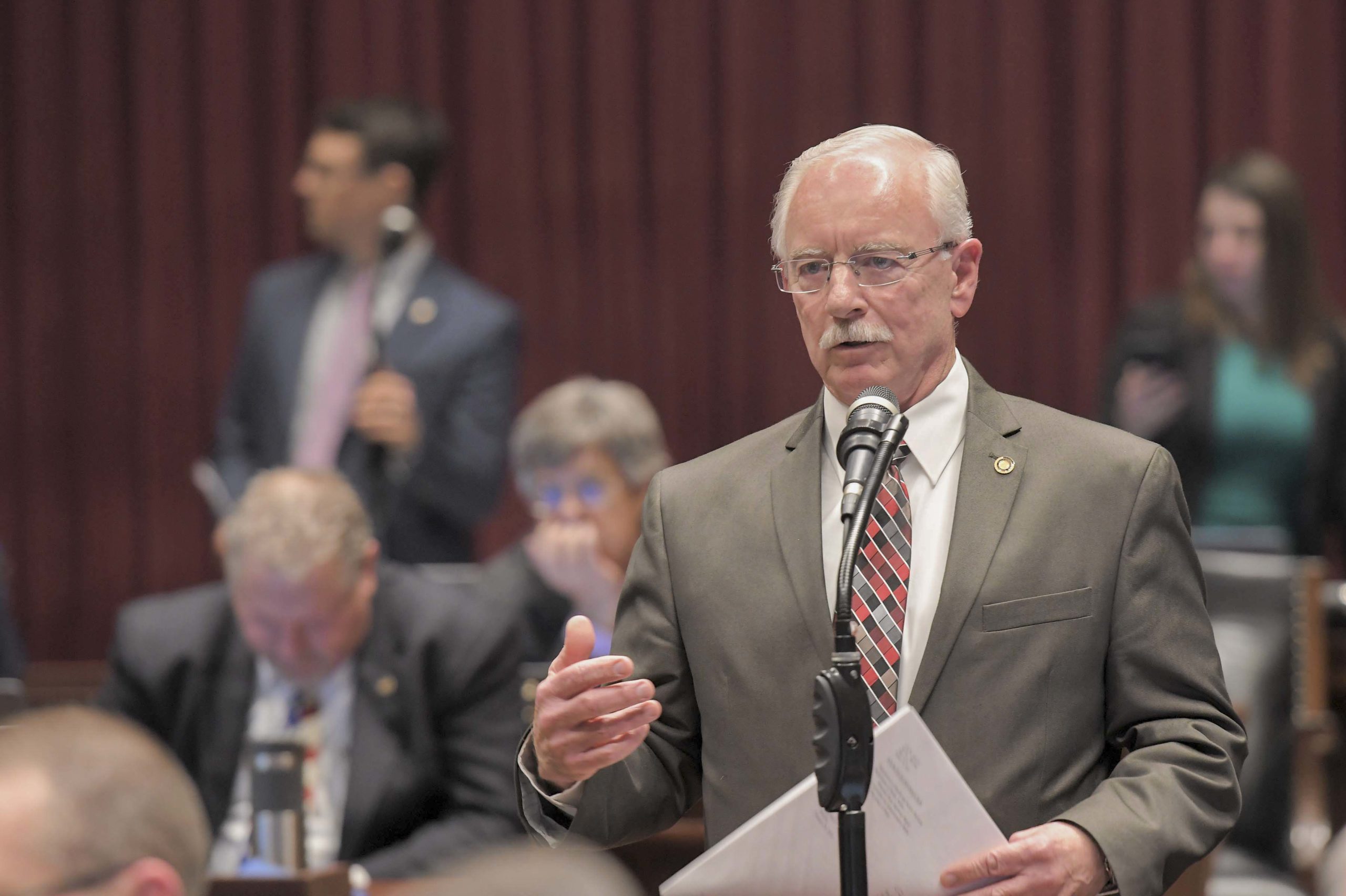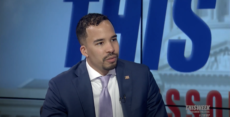JEFFERSON CITY, Mo. — Offering tuition reimbursement for officers could be a way to beef up Missouri’s law enforcement, Rep. Lane Roberts said while touting a new bill before a House committee Wednesday.
HB 295 would establish the “Peace Officer Basic Training Tuition Reimbursement Program” for individuals employed as a peace officer beginning Sept. 1. Under the legislation, officers who attend a basic law enforcement academy required to obtain full-time employment would be reimbursed 25 percent each year of employment — with the full tuition being paid back over four years if the officer remains employed.
The bill also allows for certain governmental entities that pay for the tuition for an officer to also be reimbursed.
The total amount of tuition reimbursement would not exceed $6,000 per person, according to the bill’s text. Roberts said the average cost to attend an academy not operated by a law enforcement agency is $5,591, and individuals must maintain their annual Peace Officer Standards and Training (POST) requirements at their own expense upon graduation if not yet employed.
“This bill is literally to expand the pool of qualified police applicants,” Roberts told the committee.
“For several years, recruitment of police officers has been problematic. Agencies have difficulties finding enough qualified officers to fill vacancies. A number of factors probably contribute to the problem, such as pay, media attention, family concerns with perception of violence, and distorted public opinion,” he continued. “At the very least, the time commitment and cost of completing the academy and maintaining the annual POST training requirements discourages otherwise qualified candidates from pursuing a law enforcement career; it’s probably exasperated for people with families.”
To qualify for the tuition reimbursements, individuals would apply to the commission with proof of employment, a transcript of the basic training coursework, graduation date, and the total amount of tuition paid.
Because of the price tag on the bill already, Roberts said it’s not intended — at least at this point — to be retroactive. The fiscal note attached to the bill is more than $5.7 million by 2026. However, Roberts estimated the total cost would be $3.3 million each year, beginning with the fourth year, provided half of applicants find and maintain employment.
“We have to start somewhere and this is an opportunity to do something proactive to bolster the ranks of our law enforcement,” Roberts said.
The POST Commission — which establishes the core curriculum for Missouri’s basic training academies, among other things — would be responsible for the reimbursement program, and the Department of Public Safety (DPS) would promulgate rules and regulations for the program’s administration.
The “Peace Officer Basic Training Tuition Reimbursement Fund” would be created in the state treasury through funds appropriated by the General Assembly through general revenue and any donations.
Missouri has 20 police academy institutions, including Lincoln University which recently became the first HBCU to house such an academy. Roberts said 11 are operated by academic institutions.
Beefing up Missouri’s law enforcement agencies has long been a topic for Missouri lawmakers. Legislators convened in the capital city for an extraordinary session last year to approve a bill ending residency requirements for public safety officials in St. Louis. And lawmakers this year are seeking to extend the end of that requirement to those in Kansas City.
HB 295 was before the House Crime Prevention Committee afternoon with only Roberts testifying on his legislation. Wednesday was the House’s first day back this week, while the upper chamber remained canceled, due to inclement weather.
Roberts filed similar legislation last year that was heard in the same committee where it stalled.

Kaitlyn Schallhorn was the editor in chief of The Missouri Times from 2020-2022. She joined the newspaper in early 2019 after working as a reporter for Fox News in New York City.
Throughout her career, Kaitlyn has covered political campaigns across the U.S., including the 2016 presidential election, and humanitarian aid efforts in Africa and the Middle East.
She is a native of Missouri who studied journalism at Winthrop University in South Carolina. She is also an alumna of the National Journalism Center in Washington, D.C.
Contact Kaitlyn at kaitlyn@themissouritimes.com.



















